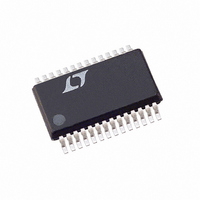LTC1628CG-SYNC Linear Technology, LTC1628CG-SYNC Datasheet - Page 12

LTC1628CG-SYNC
Manufacturer Part Number
LTC1628CG-SYNC
Description
IC SW REG STEP-DOWN SYNC 28-SSOP
Manufacturer
Linear Technology
Type
Step-Down (Buck)r
Datasheet
1.LTC1628CG-SYNCPBF.pdf
(32 pages)
Specifications of LTC1628CG-SYNC
Internal Switch(s)
No
Synchronous Rectifier
Yes
Number Of Outputs
2
Voltage - Output
Adj to 0.8V
Current - Output
3A
Frequency - Switching
140kHz ~ 310kHz
Voltage - Input
3.5 ~ 30 V
Operating Temperature
0°C ~ 85°C
Mounting Type
Surface Mount
Package / Case
28-SSOP
Lead Free Status / RoHS Status
Contains lead / RoHS non-compliant
Power - Output
-
Available stocks
Company
Part Number
Manufacturer
Quantity
Price
Company:
Part Number:
LTC1628CG-SYNC
Manufacturer:
HY
Quantity:
620
Part Number:
LTC1628CG-SYNC
Manufacturer:
LT
Quantity:
20 000
Part Number:
LTC1628CG-SYNC#PBF
Manufacturer:
LINEAR/凌特
Quantity:
20 000
Part Number:
LTC1628CG-SYNC#TR
Manufacturer:
LT/凌特
Quantity:
20 000
OPERATIO
LTC1628-SYNC
Of course, the improvement afforded by 2-phase opera-
tion is a function of the dual switching regulator’s relative
duty cycles which, in turn, are dependent upon the input
voltage V
the RMS input current varies for single-phase and 2-phase
operation for 3.3V and 5V regulators over a wide input
voltage range.
It can readily be seen that the advantages of 2-phase
operation are not just limited to a narrow operating range,
but in fact extend over a wide region. A good rule of thumb
for most applications is that 2-phase operation will reduce
the input capacitor requirement to that for just one channel
operating at maximum current and 50% duty cycle.
A final question: If 2-phase operation offers such an
advantage over single-phase operation for dual switching
regulators, why hasn’t it been done before? The answer is
that, while simple in concept, it is hard to implement.
Constant-frequency current mode switching regulators
require an oscillator derived “slope compensation” signal
to allow stable operation of each regulator at over 50%
duty cycle. This signal is relatively easy to derive in single-
phase dual switching regulators, but required the develop-
ment of a new and proprietary technique to allow 2-phase
12
IN
(Duty Cycle = V
U
Figure 3. Input Waveforms Comparing Single-Phase (a) and 2-Phase (b) Operation for
Dual Switching Regulators Converting 12V to 5V and 3.3V at 3A Each. The Reduced Input
Ripple with the LTC1628-SYNC 2-Phase Regulator Allows Less Expensive Input Capacitors,
Reduces Shielding Requirements for EMI and Improves Efficiency
(Refer to Functional Diagram)
OUT
I
IN(MEAS)
/V
IN
= 2.53A
(a)
). Figure 4 shows how
RMS
DC236 F03a
INPUT CURRENT
INPUT VOLTAGE
3.3V SWITCH
5V SWITCH
500mV/DIV
20V/DIV
20V/DIV
5A/DIV
operation. In addition, isolation between the two channels
becomes more critical with 2-phase operation because
switch transitions in one channel could potentially disrupt
the operation of the other channel.
The LTC1628-SYNC is proof that these hurdles have been
surmounted. The new device offers unique advantages for
the ever-expanding number of high efficiency power sup-
plies required in portable electronics.
3.0
2.5
2.0
1.5
1.0
0.5
Figure 4. RMS Input Current Comparison
0
0
V
V
I
IN(MEAS)
O1
O2
= 5V/3A
= 3.3V/3A
10
= 1.55A
(b)
INPUT VOLTAGE (V)
DUAL CONTROLLER
RMS
SINGLE PHASE
DUAL CONTROLLER
2-PHASE
20
DC236 F03b
30
1628 F04
40
1628syncfa














